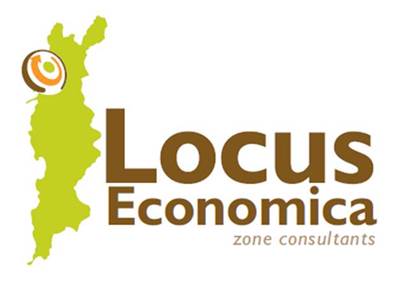Jean-Paul Gauthier meeting with staff from the Punjab Board of Investment and Trade (PBIT). Courtesy of the PBIT.
From June 2015 to January 2016, the Punjab Board of Trade and Investment and the Pakistani Ministry of Commerce reached out to Locus Economica for assistance on revisions to its industrial estates programs and special economic zones (SEZ) programs. Working in coordination with the World Bank Jobs and Competitiveness Program, we led workshops with Pakistani government officials, consulted with stakeholders on the context and priorities for the zones programs, and thoroughly reviewed and gave recommendations on Pakistan's current SEZ policy, laws, institutions, and plans for specific sites.
Specific substantive activities included:
Locus Economica CEO Jean-Paul Gauthier meeting with finance professionals at the Sialkot industrial zone in Punjab, Pakistan.
- Evaluaton of potential sites for the level of market demand for SEZ development and current roadblocks preventing investment in the country’s existing SEZs.
- Assessment of the country’s current SEZ Law and Regulations and recommendation of improvements aligned with international best practices.
- Structuring PPP frameworks for the development and operation of industrial estates, evaluation of alternative scenarios, and guidance to the local administrative units on the formation of PPPs.
- Development of an infrastructure fund to finance development needs in the zones and address socio-environmental challenges. Alternative scenarios also provided.
- Creation of a risk analysis for the industrial estates, with emphasis on socio-environmental risks as well as economic risks.
- Evaluation of current performance of industrial estate administrators and operators and recommendations for changes to their design and functions.
Pakistan's zones have the potential to harness the major opportunities presented to the country from foreign investment in infrastructure development, such as the new economic corridors planned to link the country to the Gwadar Port. With an improved framework, the new SEZ program can help leverage these opportunities to stimulate business growth and job creation.
For more information see our blog post about this project.


